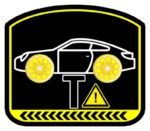Depending upon your own comfort level when it comes to modifying your vehicle or performing vehicle maintenance, you may inevitably find yourself interacting with a dealership’s parts department. For example, a need to work on your Chevy truck might align you with a GM parts and Accessories specialist, before you begin any project or repair. Of course, the likelihood of your doing so will also depend greatly upon the dealership which you choose (or are required) to do business with.
That said, when it comes to vehicle repair, there is a notable disparity in the expense shouldered by those who rely upon dealerships, versus those who are more confident in their Do-it-Yourself capabilities. The former are forced to cough up substantially more cash to offset payroll, other overhead costs, and poorly-defined service charges; while the latter are more likely to complete basic maintenance ‘at-cost’ (plus their own time and sweat). The difference is more than nominal, with DIY’ers averaging $500 per year and service-reliant drivers paying up to $2,000 within the same time-frame.
That said, both groups are more likely to enjoy a satisfying ownership experience if they remain diligent in terms of proper vehicle maintenance. And regardless of which group you personally belong to, there are steps you can take to minimize the expenses that will inevitably come. Here are ten such examples of such steps.
Don’t Neglect Preventative Maintenance and/or Minor Repairs
Simply put, automotive maintenance should never fall victim to procrastination. There are a wide-range of basic maintenance needs that every vehicle will require at some point, and here’s a fun fact: many examples can be easily learned, and facilitated by oneself. Do if you can. Learn how to do so, if given the opportunity. Pay for the service if you must. But DON’T WAIT.
Such required shows of care as the changing of oil and/or oil filter is widely understood as important, and yet many don’t understand the inevitability of engine seizure if you don’t. Such an event could render your vehicle useless, repairable only with the purchase and installation of an entirely new engine (let alone other related issues which could arise). The same applies to changing of transmission fluid, monitoring of fluid levels and regular checking of tire pressure. But in addition to lasting vehicle damage, there are also issues of safety related to say, failure to replace worn brake pads.
At the end of the day, vehicle care is one area where procrastination should never show its ugly visage. Don’t put off tomorrow, what could be done today.
When Paying for a Service, Request Your Parts Back
Here is an example of a mistake that is made all too often. When paying for service, it’s normally due to the repair being outside your skill level, or simply due to ease or time management. At the end of the day, not all garages employ the same professionalism or code of ethics. By requesting that the original (damaged or worn) parts be returned to you, allows you to confirm that the new parts were actually installed, and done so in a proper manner. It also empowers you to have someone with a skilled eye, take a look at the part that was removed, to ensure that everything was necessary. Failure to do so could leave you vulnerable to unnecessary repair or price gouging for the service rendered.
Understand Proper Tire Care
All too often, people diminish the importance of maintaining tire pressure to preventing risk of a high-speed blowout. While that’s certainly a concern, tires play a far greater role in your vehicle’s drivability and economy. Do you realize that maintaining proper tire inflation can improve your gas mileage up to 3.3%? And for those who reside in areas with seasonal weather changes, the importance of traction should never be minimized. That said, maintaining proper air pressure at all times can minimize risk of accident, improve fuel economy and protect you from unnecessary costs related to damage.
Don’t Ignore Dashboard Warning Lights
They are there for a reason, folks. While some warning lights may activate in error due to a bad code, the prevailing majority are activated to make you aware that something is wrong. Whether your Check Engine light or that for your Temperature, Brake or Oil Pressure, understanding the warning signs of potential risk or failure give you the opportunity to react as needed. Considering that the light could be indicating an issue which could reduce your MPG by up to 30% should be all the reason you need. But performance aside, disregarding a light could result in costly damage, and potentially prove to be a safety risk.
Understand the Risk of Self-Diagnosis
Regardless of your natural aptitude (or lack thereof) toward all-things-mechanic, it’s important to approach self-diagnosis with some measure of caution, if you’re not the one who’s going to do the work to repair it. However unintentional, a vehicle owner might mislead a mechanic or technician, drawing their focus to the wrong issue and potentially leaving a larger issue unresolved or unrepaired.
Effective Communication of Issues
Which segues perfectly into the importance of being able to communicate any problems that you are experience. This means trusting in your senses and sharing that with your mechanic to the best of your ability. This will help them to best understand what needs attention.
Choose Garage over Dealership
Unless the work is under warranty, you might enjoy some savings from choosing a reputable and trustworthy local garage instead of a dealership.
Compare Quotes
Regardless of whether you’re inclined to bring your work to a garage or dealership, don’t assume that the first quote you receive is the lowest. While the lowest quote should always be taken with a grain of salt, getting multiple quotes (and leveraging them) could help you to secure the best blend of service and price.
Failure to Do-it-Yourself
As mentioned earlier, basic maintenance can be easy to learn and facilitate. Take pride in learning how to replace an air filter, a light bulb or wiper blades. There are plenty of tutorials available online and can save you from paying a significant mark-up.
Maintain Fuel Levels
It’s joked that there are two kinds of people: those who push the limits of how far they can drive on fumes, and those who feel an urge to refill at half-a-tank. With modern fuel-injected engines, it is far more prudent to resist any urge to drive on depleted fuel levels, due to potential damage to the fuel pump. Driving smart might save you money down the line.
And ultimately, that’s the most important thing we can do: operate and care for our vehicles in a manner that benefits us in the long-run. By doing so, we ensure the best possible return on our investment, guaranteeing longevity, dependability and minimizing any major expenses.




